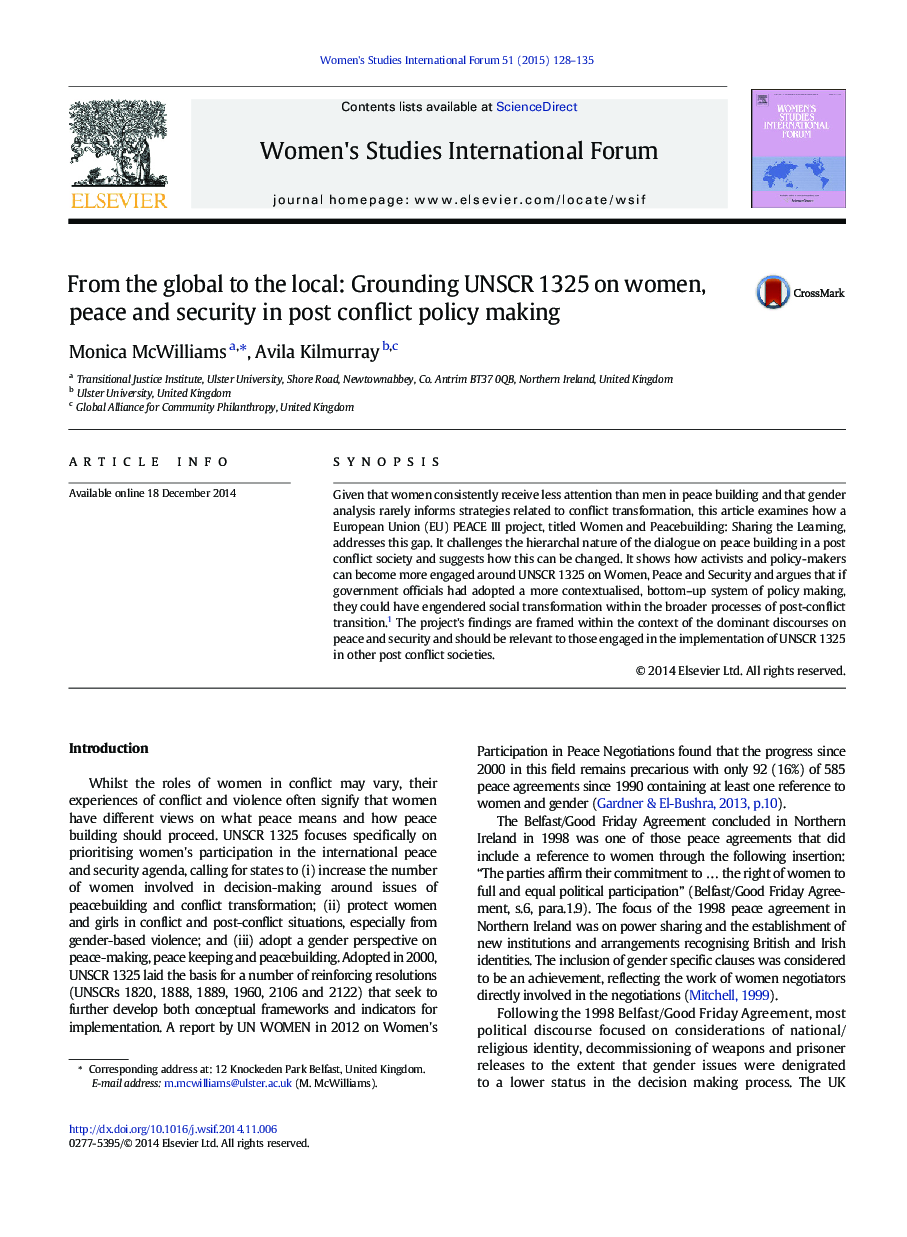| کد مقاله | کد نشریه | سال انتشار | مقاله انگلیسی | نسخه تمام متن |
|---|---|---|---|---|
| 375884 | 622836 | 2015 | 8 صفحه PDF | دانلود رایگان |
SynopsisGiven that women consistently receive less attention than men in peace building and that gender analysis rarely informs strategies related to conflict transformation, this article examines how a European Union (EU) PEACE III project, titled Women and Peacebuilding: Sharing the Learning, addresses this gap. It challenges the hierarchal nature of the dialogue on peace building in a post conflict society and suggests how this can be changed. It shows how activists and policy-makers can become more engaged around UNSCR 1325 on Women, Peace and Security and argues that if government officials had adopted a more contextualised, bottom–up system of policy making, they could have engendered social transformation within the broader processes of post-conflict transition.1 The project's findings are framed within the context of the dominant discourses on peace and security and should be relevant to those engaged in the implementation of UNSCR 1325 in other post conflict societies.
Journal: Women's Studies International Forum - Volume 51, July–August 2015, Pages 128–135
